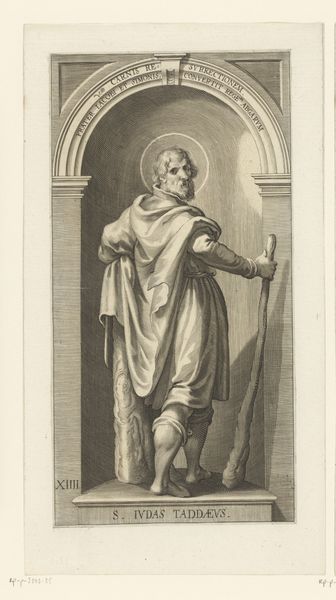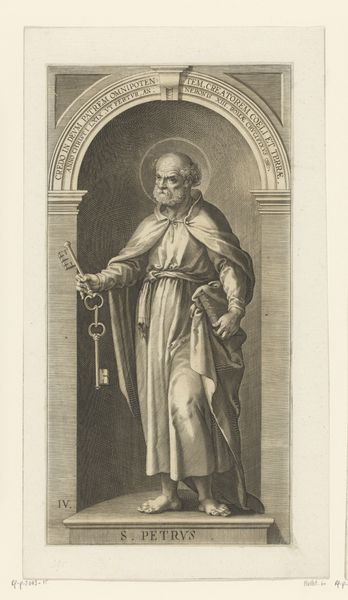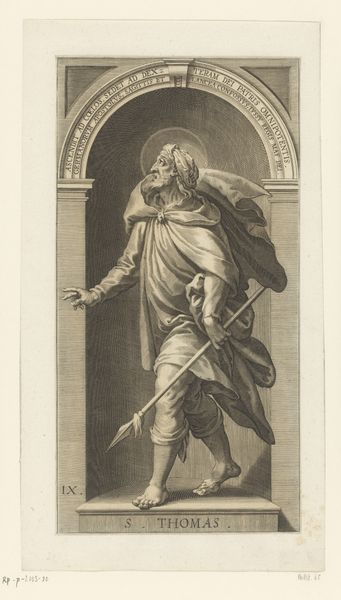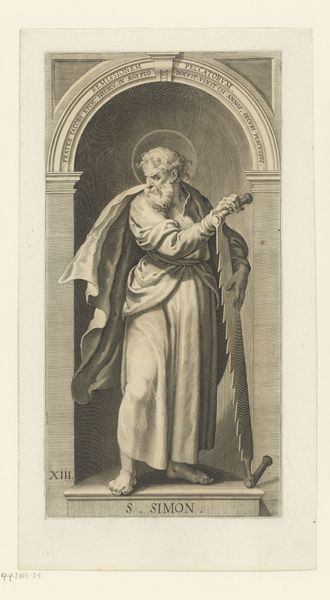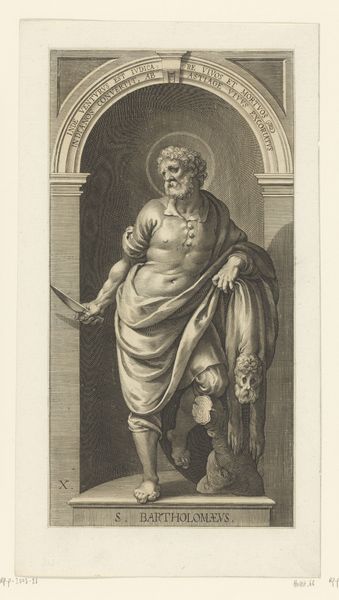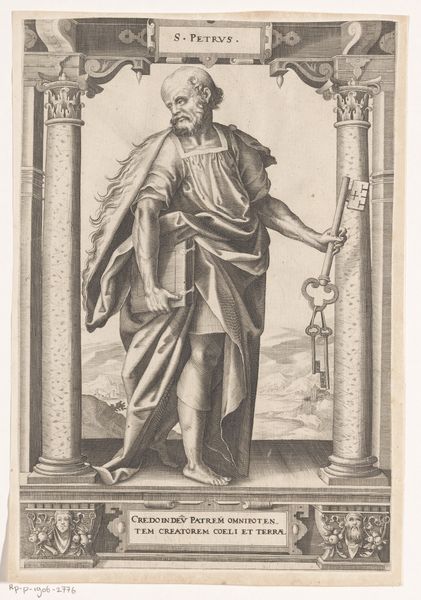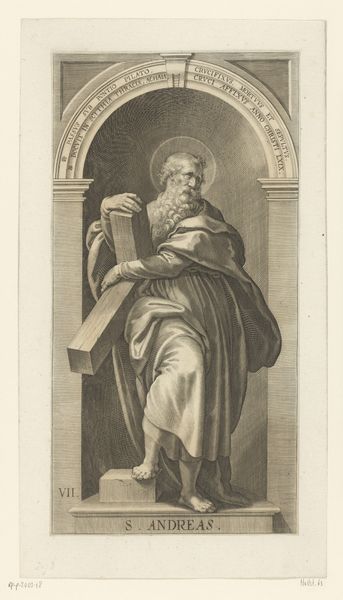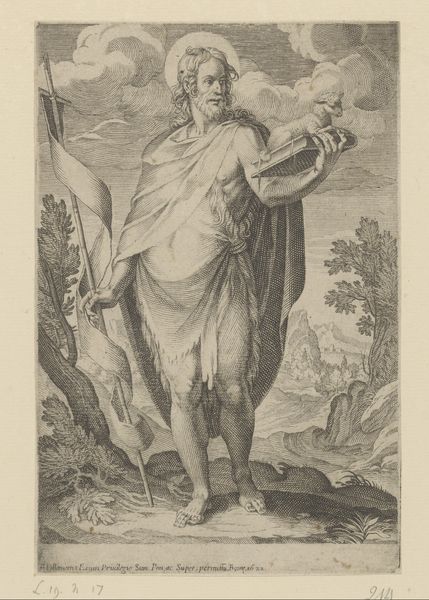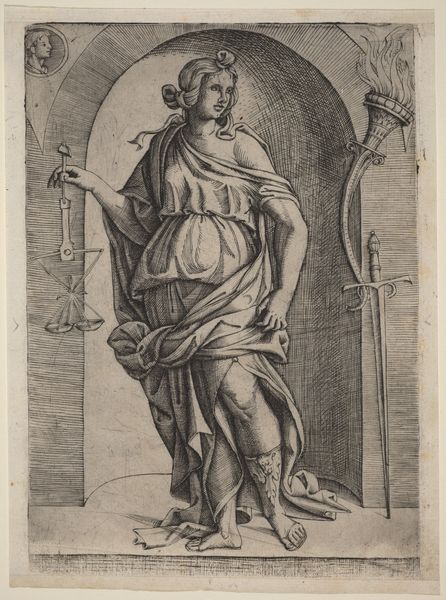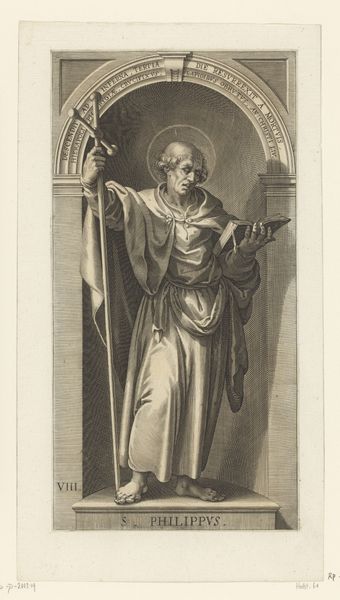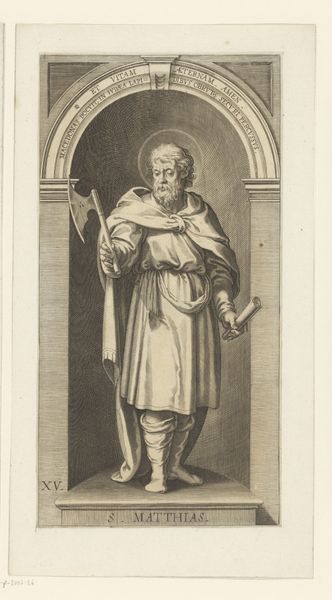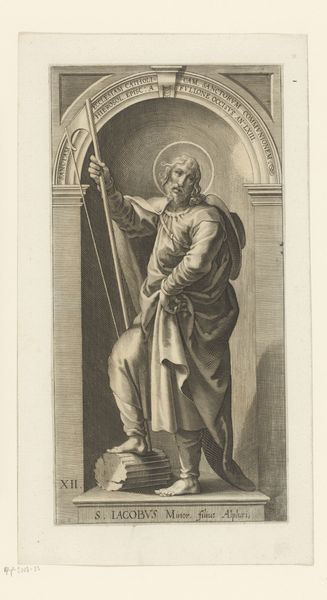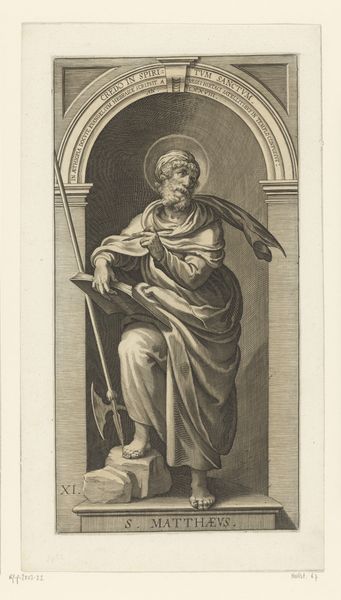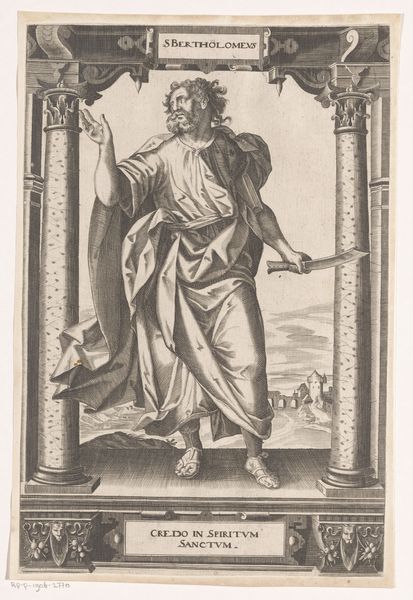
print, engraving
#
portrait
#
baroque
# print
#
old engraving style
#
figuration
#
history-painting
#
engraving
Dimensions: height 302 mm, width 155 mm
Copyright: Rijks Museum: Open Domain
Editor: This is "H. Jakobus de Meerdere," a 1623 engraving by Lucas Kilian, housed in the Rijksmuseum. The precision of the lines is really striking! It feels incredibly detailed and almost photographic, even though it's a print. What do you find particularly interesting about this work? Curator: The engraving itself tells a compelling story about production and access. Consider the labor involved in creating such a detailed image using a burin on a metal plate. Each line meticulously carved. This wasn't a spontaneous gesture, but a carefully planned and executed process. It speaks to a skilled artisan catering to a market eager for reproducible images, circulating not only art, but religious and political ideas too. Editor: So, the act of printing makes it almost... democratic? More people could access this image of St. James than a painted version? Curator: Exactly! Prints democratize imagery. But we must also think of who controlled the means of production. Who commissioned Kilian? Whose ideologies are being disseminated? And for what cost was it sold? Was it affordable for most, or only accessible for a privileged elite? Editor: That’s fascinating. I hadn’t considered the economics of printmaking back then. How the cost of labor and materials influenced who got to see the image. Curator: Precisely! Consider the paper, the ink, the press – each element contributed to the final product and its accessibility. The materiality itself dictates the social life of this image. Editor: Thinking about it that way, it’s more than just a religious image. It's a snapshot of 17th-century economics. Curator: And labor! A single plate would create hundreds, potentially thousands of images. The labor involved is astounding, isn’t it? Editor: It definitely changes how I view prints from this period. Thanks for helping me look beyond just the image.
Comments
No comments
Be the first to comment and join the conversation on the ultimate creative platform.
